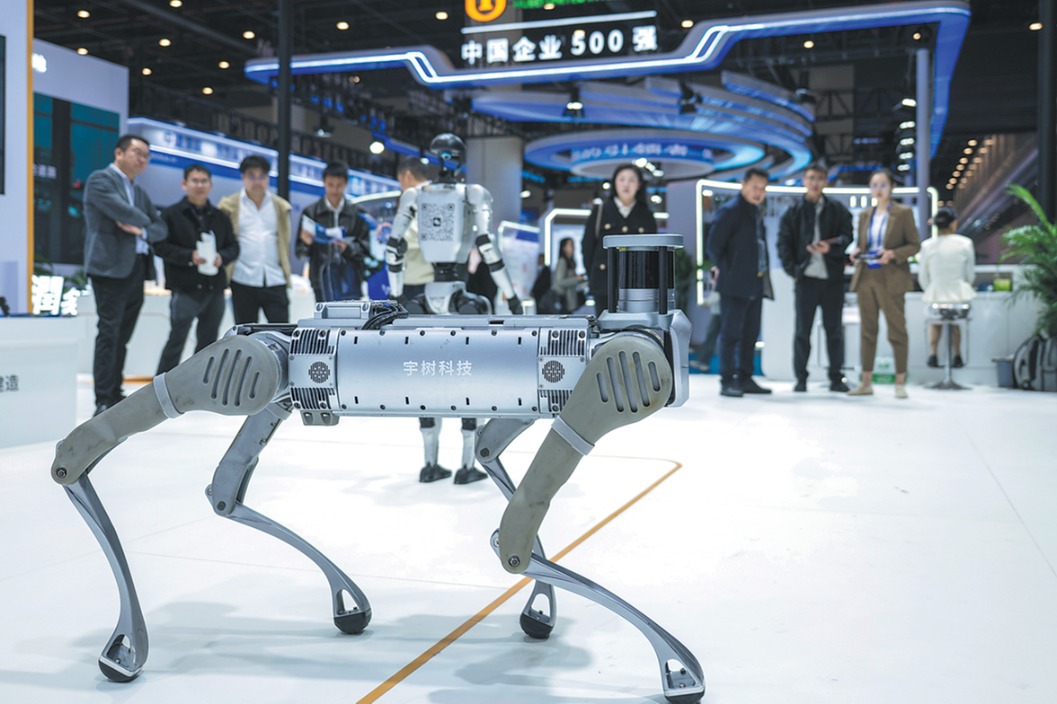Stable and pragmatic cooperation that's built on rational perception


Norwegian Foreign Minister Espen Barth Eide's recent visit to China was conducive to improving China-Norway relations. In his meetings with Chinese Vice-Premier Ding Xuexiang and Foreign Minister Wang Yi in Beijing on Tuesday, both sides reaffirmed their commitment to deepen cooperation across multiple fields — from green transformation to maritime innovation — and to uphold multilateralism at a time of rising global uncertainty.
China regards Norway as an important European partner. As Wang emphasized, Beijing hopes Norway will continue its positive, stable and pragmatic policy toward China and maintain its rational perception of the country. This reflects not only a recognition of Norway's constructive engagement with China, but also Beijing's broader vision of building mutually beneficial relations with European countries based on equality and respect.
Both sides agreed to implement the important consensus reached by their leaders and to respect each other's core interests and concerns. Since the establishment of diplomatic ties 71 years ago, the two countries have built a relationship rooted in mutual trust and shared interests. As President Xi Jinping noted during his meeting with Norwegian Prime Minister Jonas Gahr Store last year, furthering China-Norway friendship accords with the will of both peoples and serves the fundamental interests of the two countries as well as global development and stability.
The timing of Eide's visit is also significant, as the fourth plenary session of the 20th Communist Party of China Central Committee recently outlined China's development in the coming five years. As Ding told Eide, China's steady advancement of its high-quality development, green transition and technological innovation will bring fresh opportunities for partners such as Norway. Strengthened political mutual trust and deeper cooperation in trade, investment, and the green transformation can create new growth momentum for both economies.
Norway's expertise in offshore platforms, renewable energy and carbon capture aligns naturally with China's industrial strengths in clean energy, shipbuilding and electric vehicles. At the Nor-Shipping 2025 exhibition earlier this year, a meeting place for the global maritime and ocean industries, Chinese and Norwegian companies showcased joint advances in green shipping technologies — from battery hybridization to carbon capture. Norwegian officials noted that Chinese shipyards are now producing some of the world's most advanced vessels, and Chinese participation at the event was the largest ever.
Norway's role as the guest country of honor at Marintec China 2025, a major maritime event to be held in Shanghai from Dec 2 to 5, will further highlight this shared commitment to a greener, more sustainable maritime future.
Norway's zero-tariff policy for Chinese electric vehicles and its openness to Chinese green technologies demonstrate its confidence in the potential of win-win trade. Norwegian companies are optimistic about the Chinese market and eager to explore opportunities in renewable energy, seafood and innovation sectors. At the same time, China's further reform and high-standard opening-up will ensure a more transparent and stable business environment for Norwegian enterprises.
The two countries' consistent advocacy for dialogue and cooperation in addressing challenges such as climate change, biodiversity conservation and regional peace — most recently their joint call for a comprehensive and lasting ceasefire in the Middle East — illustrates their shared sense of international responsibility. Eide praised China's Global Governance Initiative as highly compatible with Norway's own vision of supporting a rules-based international order and the spirit of the UN Charter.
The steady course of China-Norway relations offers a valuable example of how countries with different social systems and at different stages of development can engage with each other through mutual respect, openness, and a shared commitment to global well-being. Looking ahead, both sides have every reason to transform their long-standing friendship into an even stronger partnership — one that continues to serve the interests of their peoples and contributes to peace, stability and sustainable progress worldwide.


































